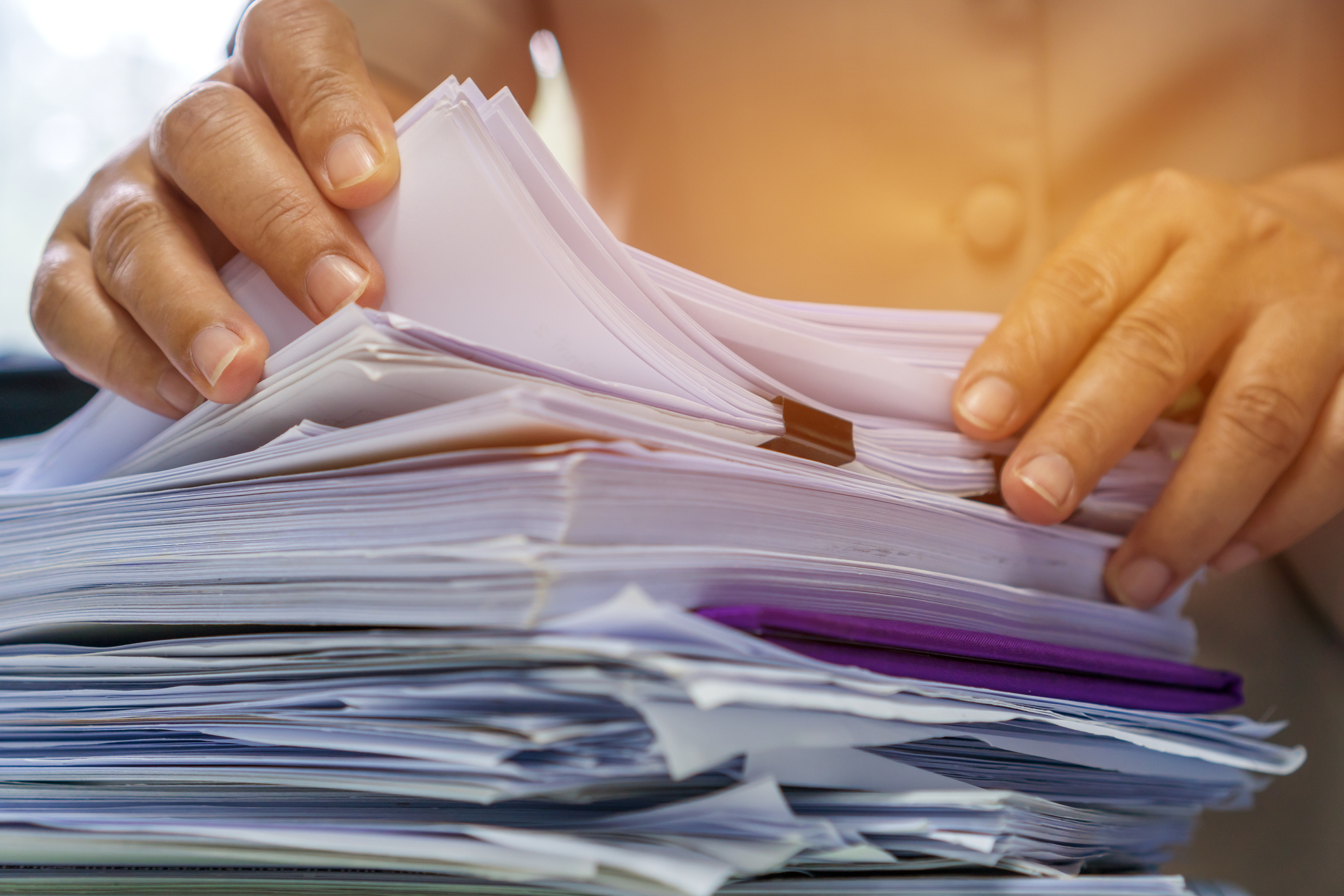Somehow, the piles of paperwork in your home expand pretty quickly. Determining what should be saved, recycled, or shredded can be challenging.Most documents fall into three categories: keep forever, hang onto for a while, or shred. We thought we’d provide you with an at-a-glance outline to help you get organized quickly.
Keep Them Forever:
As a general rule, if the document came from the federal government or state, then it’s best to keep it permanently secured and readily accessible. You cannot quickly replace these items. A lengthy request to government agencies is often necessary if a spare copy is ever needed.
- Birth, Adoption, Marriage and Death Certificates
- Business, Marriage and Professional Licenses
- Car Titles and Loan Paperwork
- Current Debt Repayments
- Financial Records: think Brokerage Statements, Equity/Stock Records, Pension Plans and Retirement Plans
- ID cards, Driver Licenses, Passports, Social Security Cards
- Insurance Policies for Medical, Property and Vehicles
- Living Wills, Power of Attorney and Wills
- Proof of Loan Payments for Mortgages, Property and Schools
- Property Deeds, Home Improvement Records, Mortgages and Property Tax Records
Keep These Papers for A While:
This next group of paperwork includes things you only need to keep for a limited period of time.
- Employee Pay Stubs and Tax Records (at least 5 years)
- Medical Bills (at least 1 year)
- Prior Property and Home Improvement Records (at least 5 years after selling)
- Workers’ Compensation files (at least 10 years)
What About Your Tax Returns?!
Tax records can be complicated, which is why we turned to the pros at the IRS for the particulars. Visit their website or check with an accountant for more specifics.
- Keep records for 3 years if situations 4, 5 and 6 below don’t apply to you
- Keep records for 3 years from the date you filed your original return, or 2 years from the date you paid the tax, whichever is later
- Keep records for 7 years if you file a claim for a loss from worthless securities or bad debt deduction
- Keep records for 6 years if you do not report income you should report, and it is more than 25% of the gross income shown on your return
- Keep records indefinitely if you do not file a return
- Keep records indefinitely if you file a fraudulent return
Shred Away!
Ready to declutter your home? Here’s what you can dump, once you’ve put it through a shredder.
- Credit Card Offers (avoid credit and identity fraud)
- Expired Credit Cards
- Old Pay Stubs (it’s all digital now anyway)
- Voided Checks






